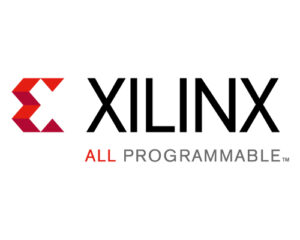 Xilinx, Arm, Cadence Design Systems, Inc., and TSMC announced a collaboration to build the first Cache Coherent Interconnect for Accelerators (CCIX) test chip in TSMC 7nm FinFET process technology for delivery in 2018. The test chip aims to provide a silicon proof point to demonstrate the capabilities of CCIX in enabling multi-core high-performance Arm® CPUs working via a coherent fabric to off-chip FPGA accelerators.
Xilinx, Arm, Cadence Design Systems, Inc., and TSMC announced a collaboration to build the first Cache Coherent Interconnect for Accelerators (CCIX) test chip in TSMC 7nm FinFET process technology for delivery in 2018. The test chip aims to provide a silicon proof point to demonstrate the capabilities of CCIX in enabling multi-core high-performance Arm® CPUs working via a coherent fabric to off-chip FPGA accelerators.
Accelerating applications in the data center is a growing requirement due to power and space constraints. Applications such as big data analytics, search, machine learning, wireless 4G/5G, in-memory database processing, video analytics, and network processing benefit from acceleration engines that move data seamlessly among the various system components. CCIX will allow components to access and process data irrespective of where it resides, without the need for complex programming environments.
 CCIX will leverage existing server interconnect infrastructure and deliver higher bandwidth, lower latency and cache coherent access to shared memory. This will result in a significant improvement in the usability of accelerators and overall performance and efficiency of data center platforms, lowering the barrier to entry into existing server systems and improving the total cost of ownership (TCO) of acceleration systems.
CCIX will leverage existing server interconnect infrastructure and deliver higher bandwidth, lower latency and cache coherent access to shared memory. This will result in a significant improvement in the usability of accelerators and overall performance and efficiency of data center platforms, lowering the barrier to entry into existing server systems and improving the total cost of ownership (TCO) of acceleration systems.
The test chip, implemented on TSMC’s 7nm process, will be based on the latest Arm DynamIQ™ technology, CMN-600 coherent on-chip bus and foundation IP. To validate the complete subsystem, Cadence provided key I/O and memory subsystems, which include the CCIX IP solution (controller and PHY), PCI Express® 4.0/3.0 (PCIe®-4/3) IP solution (controller and PHY), the DDR4 PHY, peripheral IPs such as I2C, SPI and QSPI, as well as associated IP drivers. Cadence verification and implementation tools are being used to build the test chip. The test chip provides connectivity to Xilinx’s 16nm Virtex UltraScale+ FPGAs over CCIX chip-to-chip coherent interconnect protocol.
The test chip will tape-out in early Q1 2018 with silicon availability expected in 2nd half 2018.

Leave a Reply